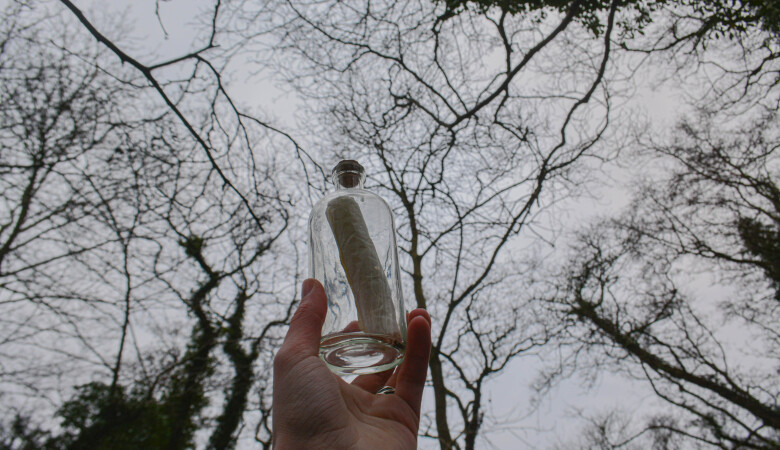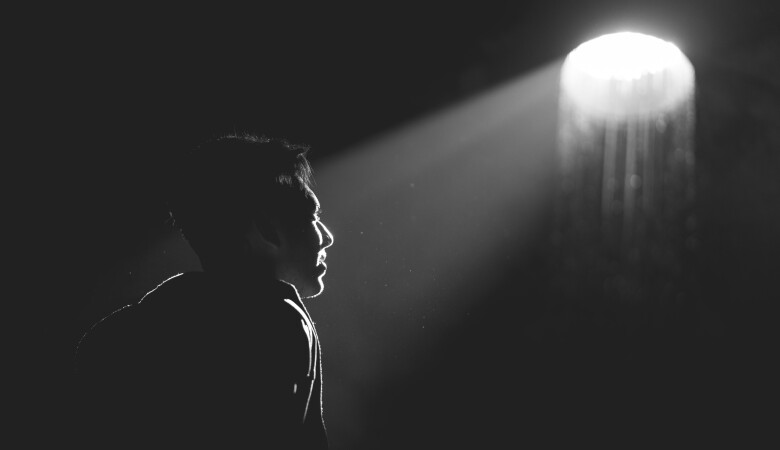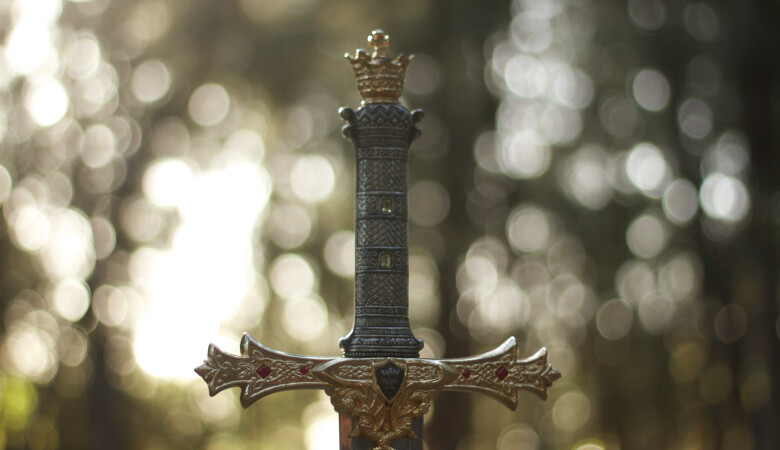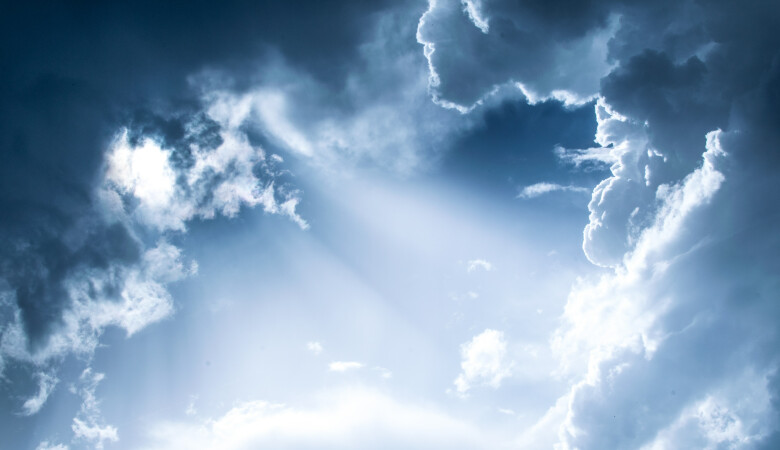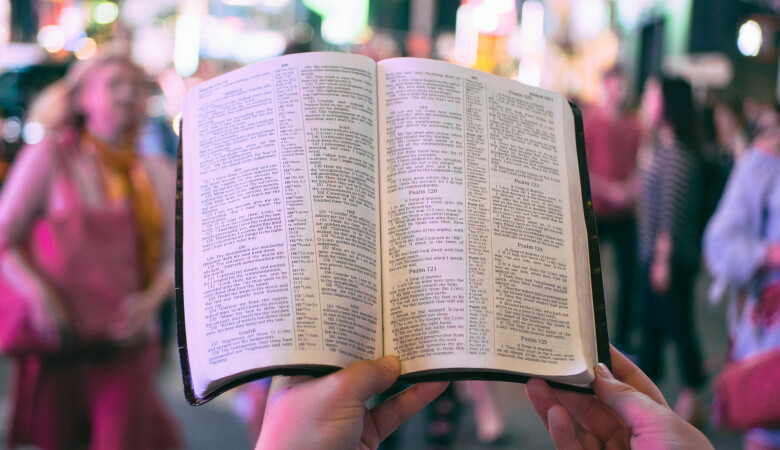The Life of Elijah - Week 4
June 02, 2002 | Andy Davis
1 Kings 18:1-19
Boldness & Courage
Pastor Andy Davis preaches a verse-by-verse expository sermon on 1 Kings 18:1-19. The main subject of the sermon is Elijah's confrontation of Ahab.
- SERMON TRANSCRIPT -
Take your Bibles if you would, and look at 1 Kings 18. We're continuing our study in the life of Elijah and we're looking today at an interaction between Elijah and a servant named Obadiah. Now, as Keith was singing that, I wondered if any of you would consider God's work in sending rain on the earth to be a miracle. It's getting kinda dry around here. I think we're waiting for the miracle of some rain. Now, certainly it is a miraculous thing when for three and a half years at the word of a servant of God, there's no rain or dew on earth. Now that's a miracle. And how much more, also, after the contest at Mount Carmel, there is at the prayer of Elijah, a small little cloud that comes and then it grows larger and larger and suddenly there's a downpour. So God listened to the voice of a man and withheld rain for three and a half years and then listened again to the voice of a man and gave it.
But I was reading a meditation from John Piper on rain and he was meditating on Job 5:8-10, now our study is in 1 Kings 18, but you can look at Job if you'd like or just listen. This is what the verse says, Job 5:8-10, “But as for me, I would seek God and I would place my cause before God who does great and unsearchable things wonders without number. He gives rain on the earth and sends water on the fields.” Now here Job calls the giving of rain to be a wonder, something unsearchable, something that you couldn't describe or trace out. Now it's not a miracle because it fits into the physical laws that God made, but as he began to describe just what was involved in rain, I began to understand what a wonder it is. Let me read this to you. I think this is remarkable:
Is rain a great and searchable wonder rock by God? Picture yourself as a farmer in the near east, far from any lake or stream. A few wells keep the family and animals supplied with water but if the crops are to grow and the family is to be fed from month to month, water has to come from another source on the fields. From where will it come? Well, from the sky. The sky? Water will come out of the clear blue sky? Well, not exactly water will have to be carried in the sky from the Mediterranean Sea over several 100 miles and then poured out onto the fields from the sky. Carried? How much does it weigh? Well, if one inch of rain falls on one square mile of farmland during the night, that would be 27,878,400 cubic feet of water. One inch of rain on one square mile of farmland, 27 million cubic feet of water, which is 206,300,000 160 gallons, which weighs 1,000,650,501,280 pounds of water. 1.6 billion pounds of water for one inch of rain on a square mile of farmland. That's heavy. So how does it get up in the sky and stay up there if it's so heavy? Well, it gets up there by evaporation. Really? That's a nice word. What does it mean? Well, it means that the water stops being water for a while so it can go up and not down. I see. Then how does it get down? Well, condensation happens. What's that? Well, the water starts becoming water again by gathering around little dust particles between 0.0001 and 0.00001 centimeters wide. I didn't work that out. One 10000000th or one 10000th of a centimeter wide. Now that's small, tiny little specs of dust up in the air and the water vapor coagulates and becomes water again. Well, what about the salt? Salt? Well, yes, the Mediterranean Sea is salt water, that would kill the crops. What about the salt? Well, the salt has to be taken out. Oh, so the sky picks up about a billion pounds of water from the sea, takes out the salt, carries the water or whatever it is when it's not water for 300 miles and then dumps it now turned into water again on the farm, right? Well, it doesn't exactly dump it. If it dumped a billion pounds of water on the farm, the wheat would be crushed. So the sky dribbles the billion pounds of water down in little drops, and they have to be big enough to fall for one mile or so without evaporating and small enough to keep from crushing the wheat stalks. How do all these microscopic specs of water that weigh a billion pounds get heavy enough to fall, if that's the way to ask the question? Well, it's called coalescence. What's that? It means that specs of water start bumping into each other and join up and get bigger and bigger. And when they're big enough, they fall. Just like that? Well, not exactly because they would just bounce off each other instead of joining up if there were no electric field present. What's that? Nevermind. Take my word for it.
That's what happens every time it rains. And that's just one of the many wonders of the physical universe that God has made around us. And that's the very thing that God said he wouldn't do until Elijah came back and spoke to Ahab. “I'm not going to do that anymore. I'm going to stop doing it.” And so it rains at the word of God and it stops raining at the word of God. It rains when he says so and it stops raining when he says to stop. And now here in 1 King's 18, look there with me. God speaks again to Elijah and says, "It's time for it to rain again." 1 Kings 18:1:
After a long time in the third year, the word of the Lord came to Elijah. “Go and present yourself to Ahab and I will send rain on the land.” So Elijah went to present himself to Ahab. Now, the famine was severe in Samaria and Ahab had summoned Obadiah who was in charge of his palace. Obadiah was a devout believer in the Lord. While Jezebel was killing off the Lord's prophets, Obadiah had taken a hundred prophets and hidden them in two caves, 50 in each, and had supplied them with food and water. Ahab had said to Obadiah, “Go through the land to all the springs and valleys. Maybe we can find some grass to keep the horses and mules alive so that we will not have to kill any of our animals.” So they divided the land that they were to cover, Ahab going in one direction and Obadiah in another. As Obadiah was walking along Elijah met him. Obadiah recognized him, bowed down to the ground and said, “Is it really you my Lord, Elijah?” “Yes.” He replied, “Go tell your master, Elijah is here.” “What have I done wrong,” asked Obadiah, “That you are handing your servant over to Ahab to be put to death? As surely as the Lord your God lives, there is not a nation or kingdom where my master has not sent someone to look for you. And whenever a nation or kingdom claimed you were not there, he made them swear that they could not find you. But now you tell me to go to my master and say, ‘Elijah is here.’ I don't know where the Spirit of the Lord may carry you when I leave you. If I go and tell Ahab and he doesn't find you, he will kill me. Yet I your servant have worshiped the Lord since my youth. Haven't you heard my Lord what I did while Jezebel was killing the prophets of the Lord? I hid 100 of the Lord's prophets in two caves, 50 in each and supplied them with food and water. And now you tell me to go to my master and say, ‘Elijah is here?’ He will kill me.” Elijah said, “As the Lord Almighty lives whom I serve, I will surely present myself to Ahab today.”
So this is an interesting interaction between Obadiah and Elijah, but I think we note right from the beginning how much Elijah is moving only at the command of the Lord. Now, we can tend to think of Elijah as a man of prayer, and he has established that way in James 5, “Elijah was a man just like us. He prayed earnestly that it would not rain and it did not rain for three and a half years. Again, he prayed and the heavens gave rain and the earth produced its crops.” You see how it's linked to Elijah prayer and that's reasonable because there was a cause and effect between Elijah’s prayer. But Elijah is merely a servant. He's merely going at the word of the Lord. Now, Elijah suddenly appears in 1 King 17 and says, "As surely as the Lord lives before whom I stand, there will be neither rain nor dew except it, my word." And then he disappears. But we have to assume that Elijah being the servant of the Lord had only gone there to begin with at the word of God. It was only that God had told him to go say that to Ahab. We have to assume it now. He just pops up out of nowhere and gives this message but we know that before that God had spoken to him and told him to go say that. Why? Because he is merely a man. Can a man control the rain like this? Can he tell the Mediterranean Sea to do all the things we just described and then tell the Mediterranean Sea to stop doing that? That's beyond a man. But God listens to prayers of men and women who pray in faith, but ultimately we are servants and we're not making up a plan. Elijah was going to stay in Zarephath as long as God told him to stay there. And when the time came, he moved out only at the word of God. And he said, "Go and present yourself to Ahab because I'm going to send rain to the earth." It's not ultimately Elijah's prayer that brought rain. It was God's power and his word that brought rain. But Elijah was a prophet and a messenger moving only at the command of God.
So also, should we. How much do we do at our own initiative? How much do we just up and decide we're going to do this and that? “Well, I think I'll do this. I think I'll do that.” Maybe we've been trained from the book of James say, "If the Lord wills, I will do this and that." But do we really seek him in prayer? Are we really moving only at his initiative? Only as the Spirit of the Lord moves, do we move? Obadiah knew that's the way that Elijah went. He said, "Look, the spirit of the Lord's going to carry you like a wind blown leaf somewhere. I don't know where you're going to go and he's going to kill me." But he knew that Elijah only moved, he only stepped out when God said so. We'd do so much better if we acted in the same way.
"But do we really seek him in prayer? Are we really moving only at his initiative? Only as the Spirit of the Lord moves, do we move? "
So God speaks to Elijah and it says in the Greek... NIV makes it a little slicker. But basically it says after many days, after a long time is what the NIV says. But really it's literally after many days and the third year, the word of the Lord came to Elijah. So there had been many days. Many days of what? Well, many days of waiting on the Lord, many days of living with the widow at Zarephath. Many days of eating the same food and drinking that little water that was in her containers day after day. Many days of waiting at the word of God. And then finally the word came and said; "Now it's time to move out." And he says in verse one, "Go and present yourself to Ahab." Now imagine the courage it would take to do this. Now, I believe that God removed Elijah from Israel- removed Elijah from interaction with Ahab all this time, not so much to protect Elijah, but rather to create what I said at the time, a famine of hearing the word of the Lord. That famine, of course, was exacerbated by Jezebel who killed off the prophets of the Lord. So there was an all of Samaria at that point, no one preaching the word of the Lord because Elijah was gone and the prophets had been killed and Jezebel ruled.
But it wasn't, I think ultimately to protect Elijah because here now he commands him to go and stand right in front of Ahab and confront him and set up what we know is coming, God willing, the next time that I preach on Elijah the great contest at Mount Carmel, that's exactly what God wants to do. He wants to set up a contest between himself and Baal. And what a great contest because Baal was a nature God among other things, and he controlled so they thought the rain. "Oh no, he doesn't. I control the rain," says God, and "I'll prove it to you. I can do anything. I can bring the rain. I can shut it down. I can bring fire from heaven. I can do it all. I am God." So he wants to set up that contest, but first we have to have this interaction with Ahab. So he says, "Go present yourself to Ahab." Intrinsic in that command though is, “I will protect you. I will keep you safe. Don't be afraid.” And that's really big, isn't it? Because I think we have a contrast here between Elijah and Obadiah. Obadiah seems to be a man ruled by fear. Do you sense that? He's afraid all the time, afraid of what Ahab will do. Afraid of what Jezebel might do. He's afraid. What'll happen if the Spirit of the Lord carries you? He's just ruled by fear. Elijah is free from that. He's ruled only by the word of God. God commands and he acts. Isn't that simple? What have we to fear except disobeying God? I got that from a Montagnard 15-year-old girl. They're not afraid of the government. We're afraid of disobeying God. That's what we're afraid of. That's all and so he goes.
It says in Proverbs 28:1, it says, “The wicked flee though no one pursues, but the righteous are bold as a lion.” And we see that throughout church history, don't we? We see it throughout the Bible, the righteous are bold, they're courageous, they're not afraid of anyone. “Go and stand in front of Ahab and I'm going to send rain on the land.” So Elijah goes and presents himself to Ahab. Now, it says in verse two, the famine was severe in Samaria. It's hard to imagine what three and a half years of no rain could do to a land. Have you looked at your lawn recently? Come and look at my lawn. Okay. I mean, there are parts that look parched. Some of them look better than others, but the fact of the matter is we've had some good rains, haven't we? But it hasn't been quite enough. Can you imagine three years of no rain? No do nothing. What do you think that journey from Zarephath down to Samaria looked like? What did it look like as he started entering the Lord's promised land and started walking by ground caked and just cracked like a desert and just wells that were dried up and maybe carcasses of dead beasts and withered plants everywhere, maybe even dead people, who can say, just carnage everywhere by this prayer that he had prayed. What went through his mind as he traveled down and thought, "I prayed for this. This is what I asked the Lord to do. The very thing that he said he would do in Deuteronomy, I asked him to do it and God did it, but it didn't come without costs." You see, sin is dangerous, isn't it? And it's deadly, and God is willing to discipline his people. So what a journey that was and what a terrifying thing to see the effect of the word of God as he walks through that famine stricken area. The famine was severe in some area. And I think there's a contrast here. I think perhaps it wasn't as bad in Zarephath. It was there, but it was even worse in the land of the Lord.
"We see it throughout the Bible, the righteous are bold, they're courageous, they're not afraid of anyone."
Now it's interesting if you read the description of what it was like during the days of Solomon, those were the days of wealth. The days of gold shields. When silver and copper was plentiful as stones in the streets, even gold that way. It was a day of rich abundance. You see, God blesses those who obey his word. He blessed Solomon richly and poured out on him lavish blessings. But this is a time of dearth, a time of emptiness, a time of famine. There's nothing in the land. That's what happens when you turn away from God. “Blessed is the man who does not walk in the council of the wicked or stand in the way of sinners or sit in the seat of mockers but his delight is in the law of the Lord. And on his law, he meditates day and night. He'll be like a tree planted by streams of water, which yields its fruit and season, whose leaf never withers. Whatever he does, prospers. Not so the wicked, they're like chaff that the wind blows away.” And that's what it was like in Samaria, dry chaff, blown by the wind. So he journeys down to confront Ahab.
Now, Ahab summons Obadiah. Now Obadiah was a steward. He was in charge of his palace and he summons him. And you get to see some of the character at this point of Ahab, some of what he's concerned about. Now, Obadiah, it says, feared the Lord greatly. NIV says he was a devout believer, but it says he feared the Lord greatly. He loved the Lord I think, and he feared him. Now, while Jezebel was killing offers for the Lord's prophets, Obadiah had taken 100 prophets and hidden them in two caves, 50 in each, and it supplied them with food and water. So he is acting courageously. Now, Jezebel, of course, was from Zarephath. She was the daughter of Ethbaal; that was the name of her father. He was the king of the Sidonians and a wicked woman. And she was probably enraged. You have to read between the lines, but enraged at the Lord and enraged at Elijah. Couldn't get at Elijah because he had disappeared from the scene. So she begins to take out her rage on the Lord's prophets. She begins to kill them. And while this is going on, Jezebel, obviously running the show there, Obadiah courageously, I think, takes 100 prophets and hides them in two caves. Now the Mount Carmel mountainous region is honeycombed with thousands and thousands of little and big caves. You know, the caves fit into David's fleeing from Saul when Saul was trying to kill him. So it wouldn't have been too difficult to hide some men in those caves, but the trouble is feeding them, you see. There's a famine in the land. There's no water. So this steward, I think courageously it manages to pull off enough food and water to keep these 100 men alive.
Now, Obadiah is a little bit of a controversial figure among the commentators. It's basically one to two, whether this guy was a good man or not. The reason that some would say that he was a righteous man and a good man was because of this action, this courageous action in hiding these prophets in a time of persecution. He was really taking his life into his hands in doing this. Also, it says openly in Scripture that he was a devout believer in the Lord. He feared the Lord greatly. That kind of praise Scripture doesn't give lightly. So AW Pink for one, believes he's a godly man making the best of a very difficult situation. Those that speak against Obadiah say, "How in the world could a servant of the Lord work with Jezebel and Ahab day after day? She's killing off all the prophets of the Lord, how in the world could he have kept his faith in the Lord's secret all that time?”
When I was in Japan, we went to a place where there had been a severe persecution on Christians. And the way that they affected the persecution was they had a little medallion, a picture of Jesus, and they made the entire population come and stomp on the face of Jesus. They believed that true believers would never do this, whereas false believers, anyone who would stomp on the face of Jesus, could not be a believer in the Lord. So they separated one from another. But there's always in church history been a category of people like Nicodemus, for example, that's afraid of society's opinion of what it means to be a believer. Take a minute and look at John 12, and John describes these people. John 12:42-43, there it says, "Yet at the same time, many even among the leaders believed in him,” believed in Jesus, “but because of the Pharisees, they would not confess their faith for fear that they would be put out of the synagogue;” look at verse 43, “for they love praise from men more than praise from God." Well, that's a very stern word from John, isn't it? Now, in their hearts, they were believers in Jesus, that's what verse 42 says, but they don't want to go public with it. They don't want to openly say anything about it. They don't want to display or let their light shine. Why? Because they're going to lose societal advantages. They're going to be put out of the synagogue. In John 9, when Jesus said, "Heal the blind man," his parents exhibited the same fear. They're afraid of what the Pharisees are going to say. They're afraid of what people will think. So they don't say anything in the trial of their son. This man, the son who's born blind and was healed, just simply testifies to what the Lord did in his life. And he is in fact evicted from the synagogue, put out of the synagogue. What did that mean for a first century Jew? It meant difficulty in getting a job, difficulty perhaps in finding a spouse if he was unmarried, difficulty in just being part of Jewish society. I believe that that was some of the poverty that Paul was constantly raising money for among Palestine. He's saying to the Gentile believers, "You owe it to the Jews to help them and support them." Why? Because they couldn't support themselves. They'd been de-synagogued. But what was the motive? According to John 12:43, they loved praise from men more than praise from God.
Now of course, in the time of persecution which Obadiah was facing to come out and openly testify that he was a believer in the Lord would mean his life. It would mean his life, probably he'd be executed by Jezebel. So he holds onto his position of power and he tries to make the best he can. Now, those that support Obadiah say look at Daniel for example. Daniel served a pagan King. Look at Joseph, he served Pharaoh. The problem is that Pharaoh and Nebuchadnezzar were not making open attacks on a revealed faith the way Ahab was. Ahab was a Jew, and he was an apostate. He was turned away from the faith. So it's very difficult to know about Obadiah, but Obadiah clearly made it daily as a believer in Jesus Christ or a believer in the Lord. Day after day, serving the Lord right in Jezebel's household. Now, how can you do that without making some compromise? So it's a little bit difficult to tell what's going on with Obadiah. The challenge to you is how public are you in your faith in Jesus Christ? Are you letting your light shine? That's not going to cost you much. You might not be de-synagogued, but you might be rejected by people, people might turn away from you. You might lose some friendships. You might lose advancement opportunities at work. You might lose comfortable relationships with relatives. You might have to pay a price to testify to your faith in Jesus Christ. Obadiah I think, was willing to pay some price, and that's why he hid these 100 prophets and fed them.
Now, in verse 5, it says, “Ahab had said to Obadiah, ‘Go through the land to all the springs and valleys, maybe we can find some grass to keep the horses and mules alive so that we will not have to kill any of our animals.’” This is absolutely stunning. Think about it. What is on Ahab's mind here? What is he thinking about? He's thinking about animals. He's thinking about donkeys and mules. He's thinking about finding some shrub brush somewhere that they can eat, so that they can keep living. Perhaps he's already lost too many animals. What is not on his mind? Well, first of all, God. He doesn't mention anything about God. He doesn't mention anything about his sin. He's not thinking about God. He's not thinking about what his wife Jezebel has done to the prophets. You're not concerned about them at all. He's not concerned about his soul. He's not concerned about repenting. He's not turned to God at all. What does he want? He wants one thing, he wants relief from God's judgment. And this is the irony here. When God’s judgment… His hand of judgment comes down hard on an unregenerate, unrepentant people; they do not turn to God. They're only hardened like the ground was in Samaria at that time. Take a minute; look at Revelation 16. Revelation 16, this is in the midst of the seven bowls of God's wrath poured out on the earth at the end of the world. In verse 10-11, it describes the fifth angel pouring out his bowl, “The fifth angel poured out his bowl on the throne of the beast, and his kingdom was plunged into darkness. Men gnawed their tongues in agony and cursed the God of heaven because of their pains and their sores, but they refused to repent of what they had done.” Now, if you read that in context, you realize that all of the plagues of the book of Revelation are cumulative, one after the other stacked up. And at this point, you think it's just some enlightened self-interest. You'd be thinking about repenting before God, but their hearts are only hardened by God's judgments. So it is also with Ahab. He's not thinking about God. He's not thinking about his sin.
What else is he not thinking about? Well, he's not thinking about his people; not concerned about his people. How unlike David is he? You remember when David counted the fighting man in Israel, the sinful census, and God gave David a choice of what punishments would come on Israel as a result of his sin. And God- or David chose plague, a disease going through Israel because he thought God is merciful and he won't keep it up for long. He knew the Lord. So after the third day of plagues, David was on his face before God interceding on their behalf, saying, "Let it come on me and on my household, they are only sheep. They haven't done anything wrong." He's standing as a leader somewhat like the good shepherd going out in front of the flock and saying, "Let it come on me. They're only sheep. They haven't done anything." That is the heart of a godly King. Ahab, what is he concerned about? Well, he's concerned about his donkeys. He wants to get enough grazing pasture for them. So he sends Obadiah out.
Now, what does the land look like at this point? Take a minute and look at Jeremiah 14, it's described very plainly there. Jeremiah 14:1-6, “This is the word of the Lord to Jeremiah concerning the drought. Judah mourns her city's languish. They wail for the land, and a cry goes up from Jerusalem. The nobles send their servants for water. They go to the cisterns but find no water. They return with their jars, unfilled, dismayed, and despairing, they cover their heads. The ground is cracked because there's no rain in the land. The farmers are dismayed and cover their heads. Even the doe in the field deserts her newborn fawn because there is no grass. While donkeys stand on the barren heights and pant like jackals, their eyesight fails for lack of pasture.” Look at verse seven, “Although our sins testify against us, oh Lord, do something for the sake of your name, for our backsliding is great, and we have sinned against you.” Now, this is much later in Israel's history, but it describes the effects of a similar drought on God's people. And the reason still the same, the backsliding, the sin of Israel, but Jeremiah is godly at this point. He says, "Our backsliding is great. We deserve this. We repent of what we've done, for the sake of the glory of your name, send rain." But Ahab has nothing of this attitude. He just wants to keep some of his mules alive. So in verse six, they divided the land that they were to cover. Ahab going on one direction, Obadiah goes in another. Now, as Obadiah is walking along, suddenly Elijah meets him. Now, what is it with Elijah? He just appears out of nowhere. He just suddenly appears and there he is. It is for this very reason and the fact that he didn't die but went up to heaven in a whirlwind, and there's a prophecy in Malachi that he would come back before the coming of the Lord. That the people were always waiting, the Jewish people waiting for Elijah to pop back at any time. Some Jews keep a chair open waiting for Elijah to come at Passover time. When will Elijah come? Because he just seems to pop up out of nowhere. So it is, Obadiah is just walking along with probably some mules or donkeys in tow trying to find something green to chew on. And suddenly Elijah appears and he recognizes him right away. Now, I'm not sure that Ahab would've recognized him, but maybe he would've. Elijah the Tishbite dressed in a coat of hair with his leather belt around his waist. Very distinguished figure. But Elijah just suddenly appears and speaks to Ahab. Just says one thing and goes. Obadiah knew who he was right away and he prostrates himself. He falls down and does him honor. Bows down to the ground and says, "Is it really you, my Lord, Elijah?" He respects him. He speaks to him.
Now, it's interesting. Matthew Henry, the Puritan commentator said that, "Just as Obadiah had acted like a father to the prophets, that they were his sons caring for them, feeding them and nurturing them. So now he acts like a son to the father of the prophets. He humbles himself before him." So I think we see some of his spirit in his heart. “‘Is it really you, my Lord, Elijah?’ ‘Yes,’ he replied.” And then he says, "Go tell your master," interesting word, "Elijah is here." Now, this is interesting. He establishes Ahab as a rightful master over Obadiah. And this is the principle that God establishes government. He establishes people in positions of authority, and they are to be respected and honored even if they are wicked evil people. It's got to do with the way that God has structured his universe. And how rebellious are we when we're constantly looking to authority figures desiring to chafe against them, murmur against them, overthrow them, question them. He says, "Go tell your master,” your Lord, literally, “Ahab, Elijah is here." At this point, Obadiah says, "Now, wait a minute. What did I do wrong? What is my sin that you're sending me off to my execution?" Now here, I think he shows a lack of faith. Elijah was a man after God's own heart like David was. He's only operating at God's word. And if he has come to say, "Elijah here," he's going to present himself to Ahab that very day. But Obadiah is a fearful man. So I think he was a godly man, and I think he took chances for his faith. But he also was used to compromising. And when you get into being used to compromising, you're given to fear. You start to drink in fear and start to question and to challenge, and you're not sure. And he thinks, "you're going to kill me, or I'm going to be sent off to be killed by Ahab. He's going to execute me." And he describes the condition spiritually. “For the last period of time while you've been gone, Ahab has looked everywhere for you. He's searched high and low. He's been in basements; he's been in attics. He's searching everywhere. He didn't look in Jezebel's hometown but he looked everywhere else. And wherever he went, he made the King there swear and promise that Elijah wasn't in his territory.” He didn't ask Ethbaal, King of the Sidonians if he might happen to be in Zarephath. He didn't go up there and ask his father-in-law if he had checked there but he looked everywhere else. He said, "I'm looking." He's looked everywhere. “Now, what's going to happen if I go and present this news to Ahab, if I say, Elijah is here? And then meanwhile, you just move along. God just leads you to some other place and we don't see you for another three and a half years, then what? He's going to execute me, what have I done wrong?”
At that particular moment, he brings out his spiritual resume. He says, "Haven't you heard what I did? Didn't the news reach you up there in the widow's house in Zarephath how I kept 100 prophets and fed them food and water. Jezebel was executing and killing the prophets of the Lord." Now, I think it's fascinating what Jezebel did. Your soul depends on how you respond to the word of God. Do you realize that? It is a heavy thing to hear God's word. It's a serious thing. Jesus said, "Be very careful how you listen." And then told the parable, the seed and the soils. Why should you be careful how you listen? Because your soul depends on a humble reception of the word of God. But if you turn it around, the extreme reaction is to kill the messenger, isn't it? You hear the word of God, you hate it, you repudiate it, and you seek to kill the messenger. And that's what Jezebel sought to do and she did. Killing the messengers, the prophets of the Lord. But Obadiah, servant of the Lord, took his life into his hands and cared for them, 50 in each cave and supplied them with food and water. So he gives him his resume. Elijah just simply answers this, "As surely as the Lord Almighty lives whom I serve, I will surely present myself to Ahab today."
"God is calling on us to step forward and to confront our generation with the word of God. And it's going to cost you something to do it, do you realize that? You've got to be willing to pay the price. "
I think that Elijah could have mentored Obadiah, couldn't he? He'd be a good disciple for him. Just lose your fear. Step out in faith, to declare yourself boldly to be a follower, and if you die, you die. But as surely as the Lord lives whom I serve, I will stand today before Ahab unafraid, and I'll speak the word of the Lord to him. In a way, it's a bit of a rebuke for this trembling servant of God, this hidden servant. Don't be afraid. The righteous are bold as a lion but the wicked flee, though no one pursues. God is calling on us to step forward and to confront our generation with the word of God. And it's going to cost you something to do it, do you realize that? You've got to be willing to pay the price. You've got to be willing to lose some things in this world, but realize that God's word sends you where his power can protect you.





